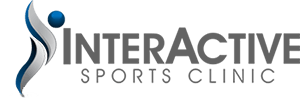What is a Concussion?
A concussion (also known as a mild traumatic brain injury) is a form of brain injury that causes a temporary disturbance in how the brain functions. Concussions happen because of a hit, bump or blow to the head or elsewhere on the body. This impact causes the brain to move back and forth inside the skull which, in turn, causes a biochemical imbalance within brain cells as well as decreased blood flow. The biggest concern surrounding concussions comes from the energy deficit that occurs in the brain. When the brain is in this low energy state, it is extremely vulnerable to additional trauma, where even smaller impacts can lead to another concussion. These subsequent concussions can cause severe brain injuries with potentially permanent or fatal outcomes.
Common Symptoms of Concussion
| Physical | Emotional |
|---|---|
| Headache | Anxiety |
| Neck Pain | Nervousness |
| Visual problems | Sadness |
| Dizziness | Irritability |
| Balance issues | More emotional |
| Nausea | |
| Vomiting |
| Cognitive | Sleep |
|---|---|
| Difficulty concentrating | Fatigue |
| Confusion | Low energy |
| Feeling slowed down | Sleeping more or less |
| Feeling "in a fog" | Difficulty falling asleep |
| Trouble thinking clearly |
Assessment
The exact combination of symptoms and their impact vary widely and must be assessed on an individual basis. Just as no two concussions are alike, no two recoveries will be identical. Comprehensive concussion evaluations can help provide a framework for understanding symptom severity and recovery progression.
Recent evidence reveals that the vestibular system (brain and inner ear) is affected in more than half of those who suffer concussive injuries, and can be a major driver of persistent symptoms.
What is Post-Concussion Syndrome?
Post-Concussion Syndrome, or PCS, is the persistence of concussion symptoms beyond the normal 1 to 2 weeks of recovery. In cases where symptoms of a single concussion last longer than one or two months, doctors may diagnose PCS.
Concussion Treatment and Rehabilitation
You may need to take some time off from school, work and/or sport immediately after a concussion. However, rest is no longer considered the only approach. Massage and physiotherapy can be extremely useful in reducing concussion symptoms and allowing resumption (following a strict protocol) of regular activities.
Treatment will include a personalized combination of education, graduated exercise, manual therapy, vestibular rehabilitation, oculomotor retraining and/or acupuncture. Guided exercise therapy has been shown to improve blood flow and speed recovery.
Headaches, balance and visual issues, dizziness and blood flow abnormalities are symptoms of both concussion and neck injuries (or whiplash). Often, ongoing symptoms are coming from the neck, which can be treated with manual therapy.
Visual disturbances and dizziness are common following concussion. Symptoms of oculomotor dysfunction can include blurred vision, double vision, eye fatigue, poor eye tracking and frontal headaches associated with visual activity. A balance and vestibular rehabilitation program may help to reduce these symptoms. [Read our VRT article here.]
Our team of therapists with concussion focused therapies have all the necessary tools to get to the root cause of your concussion symptoms, and will implement targeted therapies just for you - make an appointment now.





